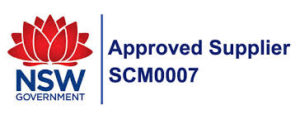 Australia is closely monitoring and responding to the outbreak of the respiratory illness caused by a novel (new) coronavirus, first identified in Wuhan, Hubei Provence, China.
Australia is closely monitoring and responding to the outbreak of the respiratory illness caused by a novel (new) coronavirus, first identified in Wuhan, Hubei Provence, China.
Coronaviruses (CoV) are a large family of viruses that cause illness from the common cold to more severe diseases such as Middle East Respiratory Syndrome (MERS-CoV) and Severe Acute Respiratory Syndrome (SARS-CoV).
This particular Coronavirus, COVID-19 is a hazard and has work health and safety (WHS) implications. Businesses, workers and others who may impact the workplace should be aware of and take reasonable actions to eliminate or minimise risks so far as reasonably practicable.
The information below provides guidance on the reasonable actions that should be taken to manage the risks of CoV within the workplace for the business, workers and others who may be impacted.
Businesses – Your responsibilities
WHS legislation requires persons who conduct a business or undertaking (PCBUs) to manage WHS risks so the health and safety of workers and other people are not affected by the businesses conduct, including the risks for CoV as a biological hazard at work.
Reasonable Action you can take
The following actions are summarised from the Australian Government and Department of Health guidelines and good business practice for managing concerns with CoV:
- Assess and manage the risks of CoV for workers and others who may be impacted by the business activities, particularly if work involves contact with and providing services to others, the WHS risk management framework.
- Review and update procedures and business arrangements to support controls for CoV, such as:
– Infection control, cleaning and hygiene practices
– Fitness for work
– Leave and absence (particularly returning from travel to mainland China)
– Flexible work and working from home
– Travel for work purposes
– Communications and updates for workers
– EAP and support for concerned workers - Implement additional controls where required to manage the risks of CoV being contracted or spread at work, refer to guidance such as the Australian Government to assist with this: https://www.health.gov.au/news/coronavirus-update-at-a-glance (link is external)
- Inform workers that if they believe they are at risk of CoV infection or have symptoms, to advise the workplace and refer to their GP, to determine actions and fitness for work based on accurate and up-to-date medical information which you can get from your relevant State or Territory Department of Health website.
- For overseas travel, refer to Smart Traveller and carefully consider travel on a case by case basis: https://www.smartraveller.gov.au/news-and-updates/novel-coronavirus-outbreak (link is external)
- Ensuring workers affected by CoV are treated respectfully and not subjected to unlawful discrimination or victimisation in the workplace.
- Inform workers that if they believe they are at risk of CoV infection or have symptoms, to advise the workplace and refer to their GP, to determine actions and fitness for work based on accurate and up-to-date medical information.
The risk of CoV worsening is foreseeable and businesses should monitor information and have contingency plans to respond to changing circumstances and to communicate with workers and respond to concerns.
Workers – Your Responsibilities
WHS legislation requires workers to follow reasonable instructions and take reasonable care to ensure their acts or omissions do not adversely affect the health and safety of other persons, this includes following the instructions of their employer and taking appropriate action for concerns related to CoV.
Reasonable Action you can take
The following are provided as a guide on the reasonable actions for workers:
- Follow the reasonable policies and guidelines from their employer to manage risks of CoV, including hygiene measures, infection control, leave, travel, working arrangements etc.
- Restrict travel to China, report symptoms of CoV to a Doctor and inform their employer of any infection risk to others, this is particularly important for workers who have been in close contact with a confirmed case of CoV even if they don’t have symptoms; workers should not attend their workplace until they have medical clearance that it is safe to do so. Symptoms include but may not be limited to sore throat, runny nose, fever, headache and shortness of breath.
- Workers who have travelled to areas with CoV concerns, such as mainland China, should notify their employer and restrict themselves from work until they are given medical clearance to return.
- For workers who raise CoV concerns to their employer and aren’t satisfied with the response they receive, they may report their concerns to their medical practitioner and their state or territory WHS regulator call centre or online, as a workplace concern.
Source: Australian Institute of Health & Safety, 28 February 2020

 Safety Australia Group
Safety Australia Group